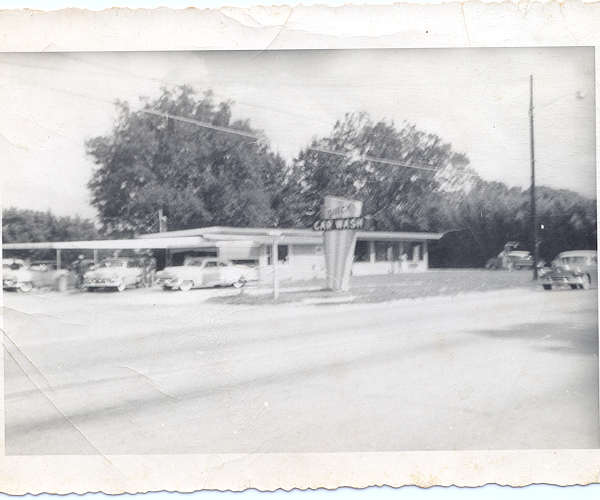
Tap into the Power of the Sixth Sense
January 29, 2024
8 minute ReadIntuition can go a long way when reading and addressing employees, customers.
Have you ever made a spur-of-the-moment decision based on a gut feeling? Perhaps you have determined just a minute into a job interview that you’re going to hire the candidate — and that person has turned out to be an invaluable member of your team. Or maybe, when you go to an auto dealership looking for a new vehicle, you spot one on the lot that you immediately feel that you should buy, and you enjoy driving it for years.
Odds are good that your decision was based, in part, on signals from your sixth sense. Dictionary.com defines sixth sense as “a power or perception beyond the five senses; intuition.” The sixth sense is sometimes referred to as instinct or a gut feeling.
In a July 19, 2023, article for Economic Times, Dr. Kruti Parekh wrote that the sixth sense, or intuition, “involves unconscious decision-making based on patterns and prior experiences…Research suggests that intuition emerges from the brain’s ability to process and integrate vast amounts of information at a subconscious level. It [allows] individuals to make quick judgments or draw conclusions based on limited data.”
That data comes, at least in part, from our sensory inputs — the sights, sounds, scents, tastes and touches that we store in our brain and that remain there, even if we are not aware of them on any conscious level. But the sixth sense goes beyond that.
“Intuition can be defined as understanding without the need for conscious reasoning. It is a form of subconscious intelligence that arises from our past experiences, knowledge and emotions. While sensory inputs can provide information to our conscious mind, intuition goes beyond these inputs and taps into a deeper level of understanding,” said Hulan Hagen, CEO and founder of the Business Intuition Institute, an entrepreneur coach and strategy consultant.
Malcolm Gladwell, author of the bestselling book “Blink,” describes this process as “the power of thinking without thinking.” He tells the story of three people — an art historian, a Greek sculpture specialist and a former art museum director — who all knew, at first glance, that a statue that had been verified as ancient Grecian by some experts was actually a fake. The people who spotted the fraud couldn’t immediately articulate why they knew it wasn’t the real thing, but had unconsciously identified the problems with the statue in just a few seconds.
“They didn’t weigh every conceivable strand of evidence. They considered only what could be gathered in at glance. …They simply took a look at that statue and some part of their brain did a series of instant calculations, and before any kind of conscious thought took place, they felt something,” Gladwell wrote.
The Sixth Sense: A Powerful Tool
The U.S. military appears to believe in the power of intuition and gut feelings. Time magazine reported in 2017 that the U.S. Office of Naval Research was studying the sixth sense with the goal of understanding how it works in order to “maximize the power of the sixth sense for operational use.”
Hagen believes that intuition can be a powerful tool in the business world, too.
“In today’s unpredictable and complex world, business owners instinctively understand that relying on facts and figures is not enough for long-term success. The idea of incorporating intuition resonates with their need for a more holistic approach to decision-making,” she said. “Intuition can help business owners and entrepreneurs make quick and confident decisions, identify new opportunities and markets, create innovative products or services, and build strong relationships with the team and customer. It allows them to tap into their inner wisdom and make choices that align with their vision and values.”
Both Hagen and Gladwell believe that the sixth sense can be nurtured and strengthened over time.
“The power of knowing, in that first two seconds, is not a gift given magically to a fortunate few. It is an ability that we can all cultivate for ourselves,” Gladwell wrote.
“We are all born with intuitive abilities. It is just a matter of how strong they are or how often we use them,” Hagen said. Her company has developed a methodology that it calls Intuitive Business Design®, which she said teaches people how to access their intuition and to use it for business transformation. “Entrepreneurs develop their sixth sense with techniques like intuitive questioning, mediation, visualization and other tools from neuroscience and mindfulness.”
Car wash owners could benefit in many ways from strengthening their intuition, she said. “It can be used to improve their marketing strategies by intuitively understanding their target audience’s needs and preferences, choosing effective promotional channels and crafting compelling messages. In terms of customer service, intuition can help car wash owners anticipate customer expectations, personalize their services and create memorable experiences. How can car wash entrepreneurs give their businesses a shine or aura that draws customer loyalty and warm customer relationships?”
Intuition can also guide car wash owners in optimizing their operations. They can use it to identify areas for improvement, make efficient resource allocation decisions and foster a positive work environment. With respect to long-term strategy, intuition can be used for opening new locations and offering new services, such as whether and where to focus on the luxury or middle car markets, Hagen said.

Putting Employees on the Intuitive Path
The sixth sense comes into play on a daily basis at car washes, as well. Most operations have some frontline employees who always seem to know the best way to appease unhappy customers, or managers who instinctively understand how to deal with a wide variety of employee personalities. Their success stems, in part, from their knack for picking up on the cues that others provide through body language, facial expressions and tone of voice.
Although these sensory inputs are not the only component of this type of intuition, they do play a role in forming people’s gut feelings or flashes of insight that help them solve a problem. They can also be honed.
ICA’s LEAD online manager training program, for example, has quite a few courses that broach this idea and provide guidance on how to nurture it. The sessions are designed specifically for the needs of car wash managers, so the training doesn’t just talk about intuition, but how it applies in the operation and management of a car wash. “Intuition is an integral skill when communicating, both to employees and customers, so providing guidance on how to nurture it is addressed quite comprehensively in our communications-related training courses,” said Claire Moore, ICA chief learning officer.
Walter Hartl, director of training at Hoffman Development Corporation, said the company has included in its employee training program the LEAD communications module, which is enabling participants to understand how both verbal and non-verbal cues can help them decipher others’ feelings and behaviors.
Mammoth Holdings also includes LEAD communication courses in its manager training programs, according to Destiny Baker, head of training, learning and development. She refers to this skill as emotional intelligence. “It’s being able to recognize what’s going on around you and to handle the interactions that you have with the people around you,” she said.
Both companies teach their employees about the different types of personalities they’re likely to encounter in their work. Mammoth employees take the Myers Briggs Emotional Intelligence Assessment, which focuses on personality types and their communications style. Hoffman uses the DiSC (dominance style, influence style, steadiness style and conscious style) test to provide attendees with similar information.
“It helps them be able to talk to an individual and discern, based on their reactions and their personality, how they are going to like to communicate,” Baker said.
This type of information gets stored in employees’ brains — conscious and unconscious — and becomes part of the data set that the sixth sense draws upon. Although people initially have to make a conscious effort to observe this body language, over time those observations become more instinctive. They quickly read and react to different situations and personalities without spending a lot of time consciously thinking about what they should do. With their sixth sense sharpened, they just know what they should do.
Car wash employees must also be aware of how their own body language and speech might inform and trigger the sixth sense of their customers. “You have just 30 seconds to make an impression. So we pose a question to our employees: If your arms are crossed or if you’re on your phone, how would you feel if you were a customer walking up? What would your impression be?” Baker said.
Hoffman teaches employees how to change their perceptions of certain situations and their behaviors in a way that will improve customers’ intuitive reactions. If a customer asks to see the manager, and that manager goes out with a scowl and folded arms, expecting a problem, customers get the impression that they’d rather be doing other things. “The customers are going to pick up on that, and that negative energy is going to create problems,” Hartl said. But when the managers take a different approach, with more open body language, actively listening to the customer and only then trying to solve their problem, customers get a much different vibe.
“Customers know when somebody is just pushing a sale and they don’t really care about you. So if employees can pick up on the sixth sense and the emotional intelligence side of it, they will have a lot more success in trying to get those customers to come back,” Baker said.

Training for a Digital Generation
Car wash organizations that aren’t making an effort to educate their employees in the basics of emotional intelligence and intuition might want to rethink their training programs — especially for the younger generations. Since many younger people today spend much of their time zeroed in on their digital screens, and have fewer in-person encounters, they are less able to interpret people’s emotions on either a conscious or unconscious level.
In a 2014 study, researchers from UCLA found that sixth-graders who went five days without interacting with a digital device did a much better job of reading human emotions than those who had spent hours using their cellphones, TVs and computers.
“A couple of generations ago, people would think this [ability to read others] is common sense. It would just be assumed that people would know this because there were a lot more in-person interactions. But as technology has advanced, these in-person interactions have de-linked, so it’s not a natural instinct for the incoming generations,” said Baker. “I think from an industry standpoint, or even just a training standpoint, the sixth sense, or the emotional side of communicating, is going to be something that has to be taught. It’s a necessity if you want that good customer experience.”
Car washes can gain a competitive advantage when their leaders and their employees learn how to understand and develop the power of the sixth sense.
“Business intuition is a secret weapon that can guide you toward success in an increasingly complex and competitive world,” said Hagen. “By combining hard facts with intuitive intelligence, you can unlock new opportunities, create future-proof business models and stand out from competitors. Embrace and develop your intuition, and let it be your trusted advisor on your business.”








